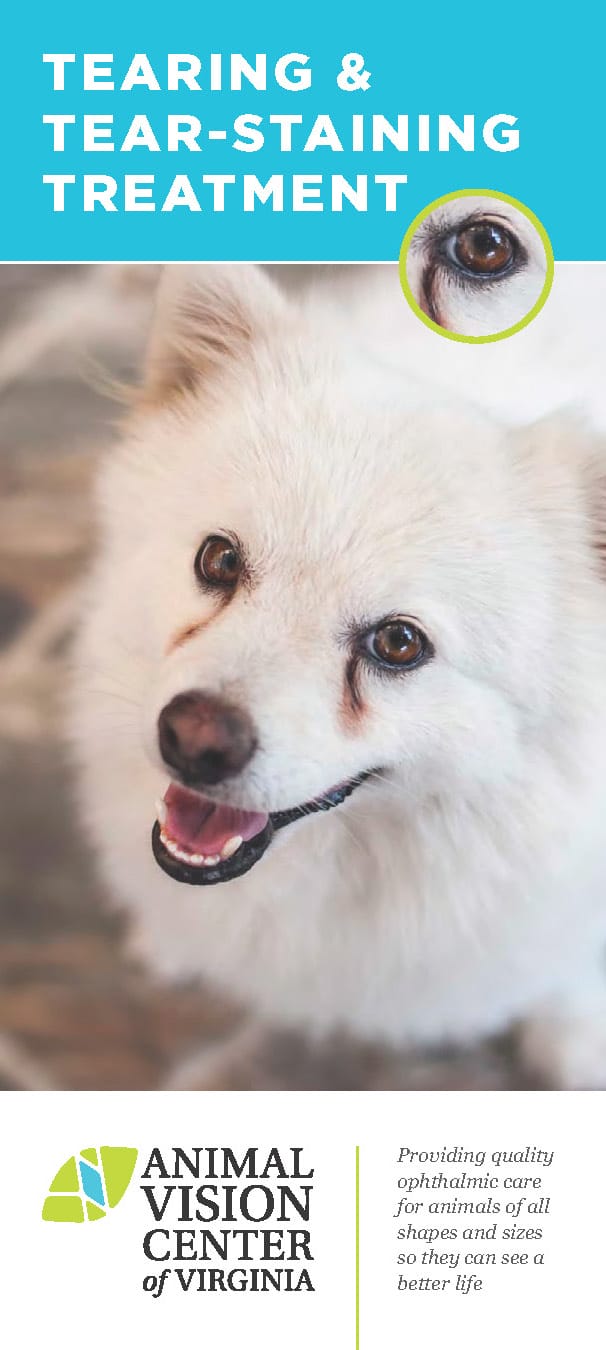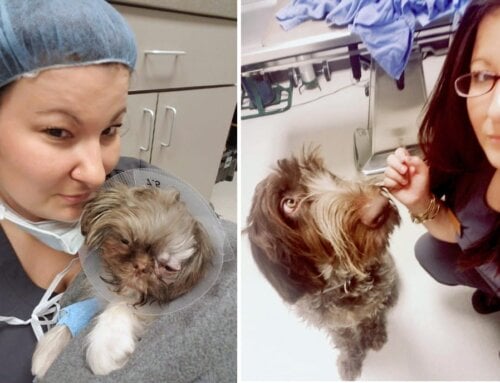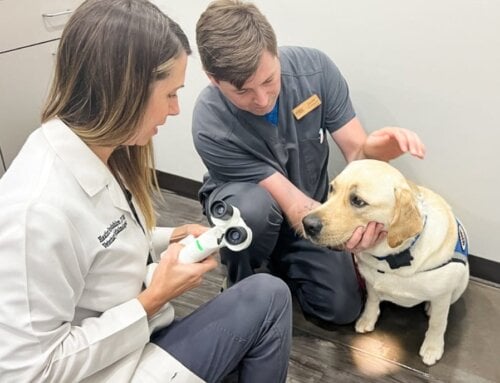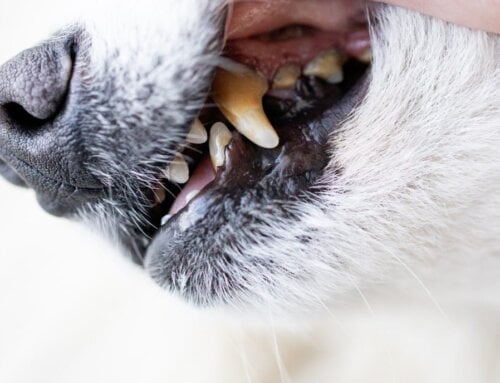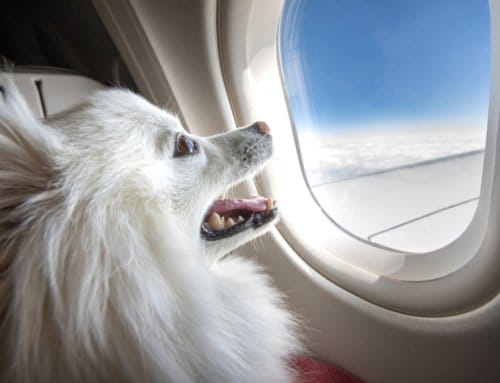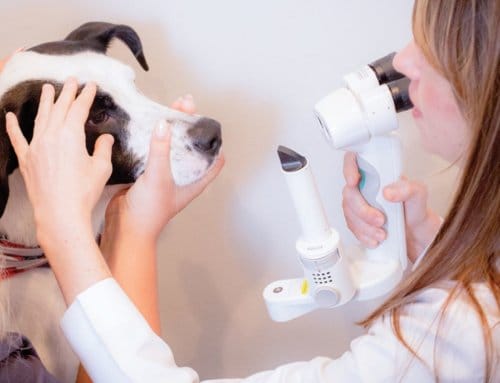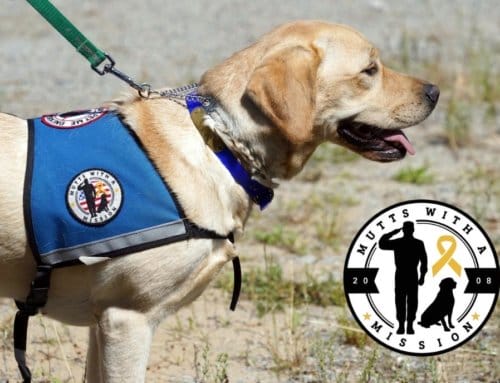Have you noticed tearing under your dog’s eyes, or do you see staining under or around her eyes as a result? Tearing is caused by an overflow of tears onto the face that is often due to the way the eyelids are shaped. While each case should be evaluated to get to the root of the underlying cause, there are certain breeds that are predisposed to tearing and tear-staining based on the relationship of the eyelids to the ocular surface.
Dolichocephalic or long-nosed breeds (Labradors, Shepherds, Huskies, Retrievers, etc.) tend to have a “well-fitting” globe-to-eyelid conformation, similar to those of their wolf ancestors, and generally have minimal problems with tearing. On the other hand, Brachycephalic or short-nosed breeds (Pugs, Shih tzus, Bulldogs, Llasa apsos, Cavalier King Charles spaniels) often have very large eyelid openings and shallow orbits. These features, create a large/round-eyed appearance, and result in excessive exposure of the ocular surface oftentimes with contact from nearby hairs causing tearing.
Toy breeds (Toy Poodle, Maltese, Havanese, Yorkie, Bichon, etc.) frequently have the opposite problem of smaller, very tightly-fitting eyelids that do not allow normal access to the tear drainage system. Giant and hound breeds (Mastiffs, Newfoundlands, Great Danes, Bloodhounds, Basset hounds, etc.) are prone to have large, floppy eyelids that are not functional in their ability to distribute tears normally on the ocular surface and often have regions that roll inward or outward resulting in tears spilling onto the face.
If your dog shows signs of tearing, tear-staining, squinting, redness or irritation, it’s a good idea to see your family veterinarian or veterinary ophthalmologist for an evaluation. Sometimes, no treatment is needed. In other cases therapy is recommended in the form of applying a lubricant to the eye surface; cryotherapy to freeze and then pluck abnormal hairs that irritant the surface of the eye; or surgery to alter the shape and conformation of the eyelids. Over-the-counter products such as pads, wipes and shampoos, and supplements, do not address the underlying cause of the tearing and tear-staining. Some can be effective in the short-term, but generally require lifelong therapy to be successful.
Do you think your pet should be seen for tearing and tear-staining?
Please call us today at 757-749-4838. We’re offering a special wellness exam rate of $65 (a 30% savings) when you book your appointment now through June 30, 2019. When you call, please mention “no more tears.” We’re here to help!

